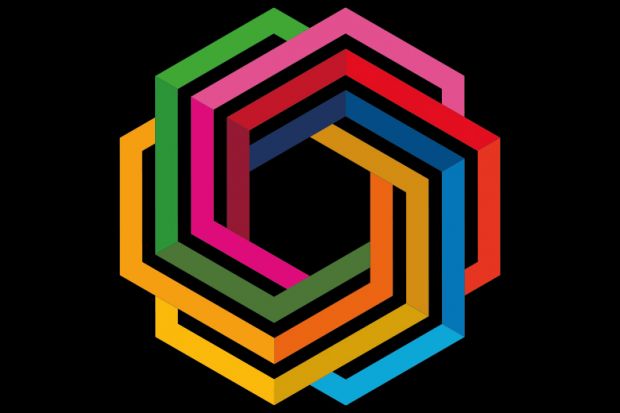One year ago, we set out to recruit a new Impact Rankings advisory board to provide guidance and oversight of the methodology.
As I wrote when we started the recruitment process, the creation of the board is an important part of our commitment to widen the transparency of our approach to measuring universities against the United Nations’ Sustainable Development Goals (SDGs).
As those of you who were able to attend our Festival of Data on 3 September will know, the Impact Rankings advisory board has now been selected. The board members will be supporting the Impact Rankings by acting as a critical friend, suggesting how we can improve the rankings, and making sure that we’re acting responsibly.
The 10 board members are:
Luiz Costa, former rector of Federal University of Viçosa and former vice-minister of education in Brazil. As a former university rector and vice-minister of education, Professor Costa has had a significant impact on education in Brazil and across the world.
Max Lu, vice-chancellor of the University of Surrey. Professor Lu leads one of the best UK universities and is active across government, as a member of the Prime Minister’s Council for Science and Technology and director of the board of UK Research and Innovation. He has held senior positions at universities and research organisations in Australia and Singapore.
Jingwen Mu, strategic planning manager at the University of Auckland in New Zealand. Dr Mu is one of the staff members at the University of Auckland who provides data for the rankings and she is also an expert on bibliometrics, working with Elsevier on analysing SDG-related research.
Carolyn Newton, director of global engagement at the University of Cape Town in South Africa. Ms Newton was part of the team that pulled together the University of Cape Town’s data for the Impact Rankings and has been involved in the institution’s SDG initiatives.
Simon Pratt, director of research strategy and excellence at the University of Toronto in Canada. Mr Pratt has been involved with rankings for many years, including helping to create the Times Higher Education World University Rankings during his 17-year stint at Thomson Reuters.
Sarah Spiegel, coordinator of international rankings at the University of Bonn in Germany. Ms Spiegel works with the German Rectors’ Conference and helped set up the Bonn Alliance for Sustainability Research.
Laura Tucker, founder and CEO of Vertigo Ventures in Singapore. Vertigo Ventures was part of the original team that helped build our Impact Rankings. The organisation produces software that supports universities in tracking their impact-related activities.
Shinobu Yamaguchi, director of the United Nations University Institute for the Advanced Study of Sustainability (UNU-IAS) in Japan. Professor Yamaguchi has extensive experience in development, not just through her work at UNU-IAS, but also from her earlier work at the United Nations Educational Scientific and Cultural Organization (Unesco), where she was involved in the development of education systems in China, Indonesia, Mongolia, and Pakistan.
Zheng Yi, head of office of the Tsinghua University’s Institute for Sustainable Development Goals (TUSDG) in China. Ms Yi helped found the TUSDG and is the manager of the Sustainable Development Solution Network’s China hub. She is working on a PhD in comparative education, focusing on higher education institutions’ SDG integration.
Meghan Fay Zahniser, executive director of the Association for the Advancement of Sustainability in Higher Education (AASHE) in the US. AASHE runs the Sustainability Tracking, Assessment & Rating System, a self-reporting framework for universities to measure their sustainability performance, and Ms Zahniser has been active in engaging with the UN’s Higher Education Sustainability Initiative.
In our first meeting, a number of areas were raised for future discussion, including:
The overall design of the rankings and the mechanics of calculation:
- Should the overall ranking continue to be based on universities’ scores in SDG 17, plus their top three scores out of the remaining 16 SDGs?
- Should we have an overall ranking at all?
- Should we continue to scale the individual SDG scores (so that the highest score in each SDG in the overall calculation is 100 and the lowest score is 0) when creating the overall ranking?
- What to do beyond 2030
Specific potential changes to the existing methodology:
- Can we include branched logic or alternative options to send institutions down different paths when submitting data to the rankings?
- We ask universities whether their policies relating to the SDGs have been created or reviewed within the past five years. Should we stick with this time frame?
Potential new areas to explore:
- How to deal with both distance learning and the digital divide
- Can we recognise experiential learning?
- How do we deal with the post-Covid world?
Questions about current calculations:
- How to ensure quality assurance in evaluation
- Can we tie in SDG 13.4 (carbon neutrality) with the approaches taken by other organisations?
As you can see, we will have a lot to discuss, and our initial focus will be to explore quality assurance.
Duncan Ross is chief data officer at Times Higher Education.
We have compiled a list of frequently asked questions about our Impact Rankings, but if you have any further questions, email impact@timeshighereducation.com.
Register to continue
Why register?
- Registration is free and only takes a moment
- Once registered, you can read 3 articles a month
- Sign up for our newsletter
Subscribe
Or subscribe for unlimited access to:
- Unlimited access to news, views, insights & reviews
- Digital editions
- Digital access to THE’s university and college rankings analysis
Already registered or a current subscriber? Login






